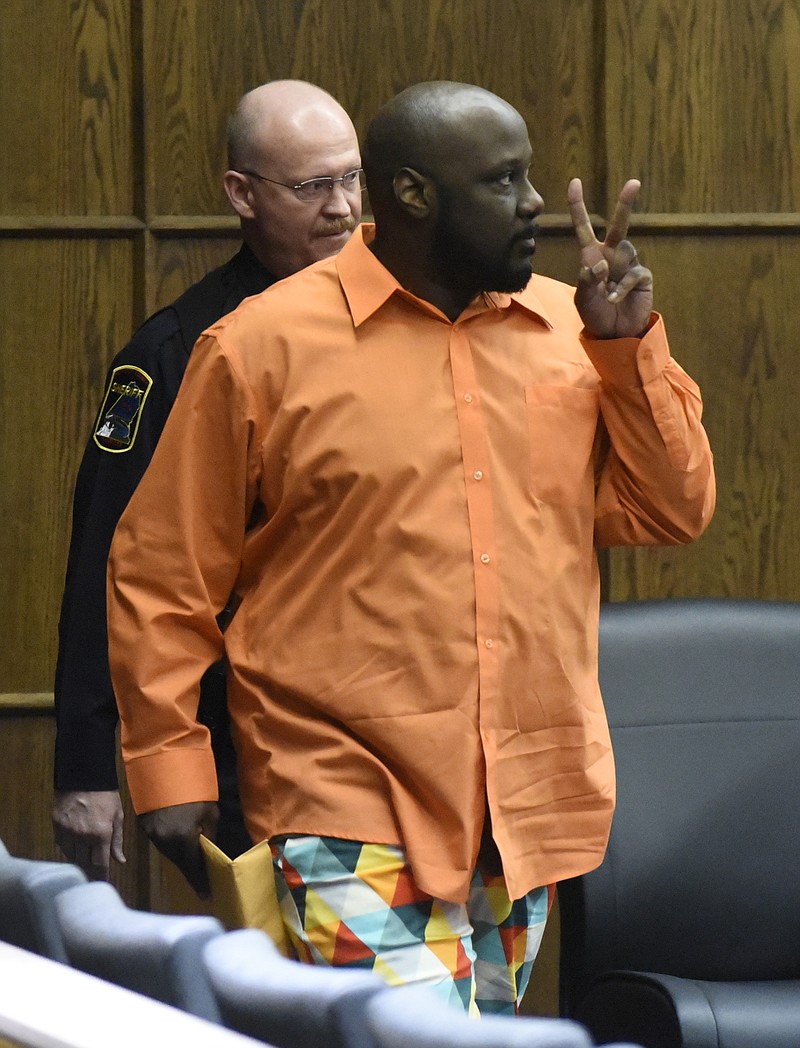After four hours of deliberation, a deadlocked jury failed to reach a verdict Thursday evening in the first-degree murder trial of Santory Johnson, who is accused of fatally shooting his friend during a party in October 2013.
"It is now 6:15," Judge Tom Greenholtz said to the jury. "The court is in no rush at all. That said, does the jury believe that additional time tonight would be productive?"
A juror rose. "At this time, we feel better to come back," he said.
Outside the courtroom, family members and friends of Christopher Jones Jr., the deceased, started to disperse.
"That's crazy,"said Deborah Williams, Jones's grandmother, "but they're being fair. They're trying to be thorough. And that's the best way to do it."
Earlier Thursday, jurors listened to prosecution and Johnson's defense walk through their closing arguments before breaking to deliberate around 2:15 p.m.
"I would die for my family," began prosecutor Kristen Spires. "That's exactly what happened on Oct. 4, 2013.
"Christopher Jones died because he confronted this man," she continued, pointing at Johnson, "over shooting at a car that had his grandmother, girlfriend and his cousins in it."
During two days of testimony, prosecutors said 15 to 30 people gathered in Johnson's side yard on 40th Street to play dominoes and cards. As Jones, 24, left around 11 p.m. in his family's car, Johnson pulled out a weapon and fired one gunshot in jest.
Jones, upset by the disrespectful gesture, asked his friend why he would fire a weapon near his grandmother, prosecutors said. He left, dropped his family members off at a nearby house, and returned to the party minutes later, alone and unarmed, seeking a more detailed explanation.
"The gunshot upset Christopher Jones," prosecutor Cameron Williams told jurors, "as it should."
The men argued on the lawn before Johnson asked Jones to leave. Jones then told Johnson he would die for his family. Stung by the challenge, Johnson, 37, trailed Jones to the car and shot him on the driver's side, prosecutors said. As Jones bled to death in the front seat, Johnson walked around the trunk, reached through the open passenger window, and fired another string of shots, they said.
"That's first-degree murder," Williams argued. "Why didn't Johnson just let him go? That's what he could have done."
Johnson's lawyers countered that everyone had written off the initial gunshot and continued playing cards. Everyone except Jones.
"He came back alone, and he came back looking for a fight," said Amanda Dunn.
Dunn referenced eye-witness testimony from Rodney Southers, now a federal inmate being held in Bradley County.
"Southers testified that Christopher Jones ran up in the yard on Santory," Dunn said. "Why?"
After Johnson asked Jones to leave, the men exchanged words, Dunn said, "but we don't know what those words really were."
Dunn said the state's eyewitness testimony was unreliable, time-distorted and influenced by personal gain. During a cross-examinationWednesday, Dunn said witness Charlotte Pinkerton's 2013 statement to police differed from her courtroom testimony.
"Let's start with Rodney Southers, the federal inmate," Dunn said Thursday. "The first inkling that he had any information was 14 to 15 months after the event."
During closing arguments, Dunn reminded the jury: premeditation demands reflection and exercise of judgment. Johnson's actions had to be "free from excitement and passion," she said.
"If you believe that his mental state was not free from excitement and passion," she concluded, "you cannot convict him of first-degree murder."

